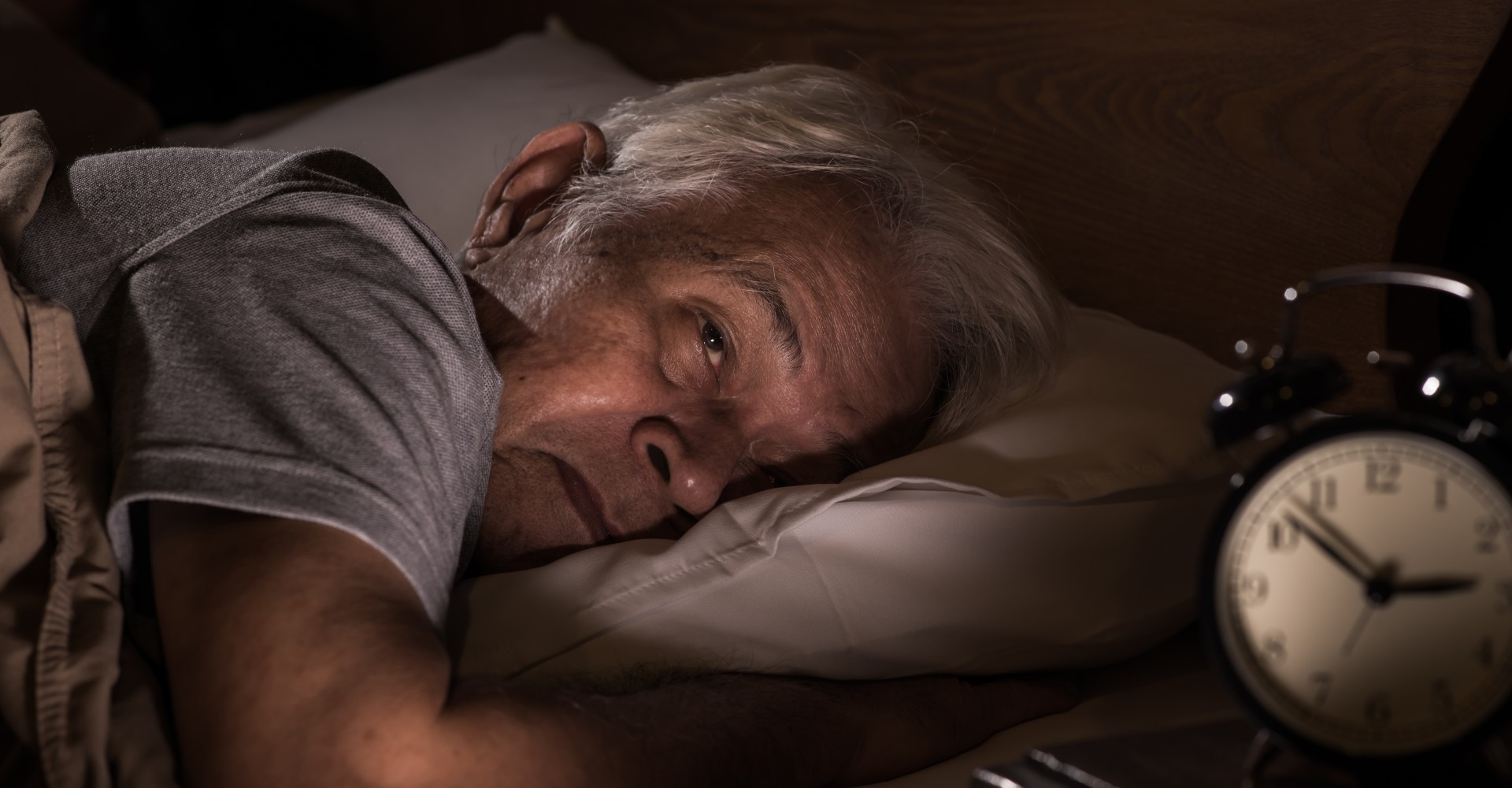
A good night’s sleep helps our memory, immune system, and energy levels. As people age, sleeping patterns fluctuate. Regular changes include falling asleep and waking up earlier and experiencing less deep sleep. However, many aging adults also experience abnormal sleep patterns which can interfere with their quality of life.
Sleep issues are often frustrating and exhausting, and if your loved one doesn’t sleep well, they are more likely to experience memory problems, depression, nighttime falls, excessive daytime sleepiness, and other health complications.
So, why does your aging loved one experience sleep issues? And what can they do to improve their quality of sleep? Keep reading to find out.
Common Causes of Insomnia in Aging Adults
Insomnia is a common term used to describe sleep issues. It is a sleep disorder that causes a variety of symptoms, such as:
- Difficulty falling asleep
- Trouble staying asleep
- Waking up too early without being able to fall back asleep
- Feeling tired when waking up
Unfortunately, many older adults experience insomnia, which can affect their health and quality of life. Some of the most common causes of sleep issues in aging adults include:
1. Dementia or Alzheimer’s Disease
People with different types of dementia, such as Alzheimer’s disease, often experience sleep issues. If your loved one experiences memory loss, their condition may affect the way the brain sleeps. The brain deterioration in dementia may tamper with the body’s natural circadian rhythm, causing your loved one to have trouble falling and staying asleep.
Many people with dementia also experience additional chronic medical conditions that can cause sleep difficulties. Secondary factors and conditions that impact sleep patterns include:
- Side effects from medication
- Alcohol intake
- Urinary conditions
- Chronic pain from arthritis or other causes
- Stomach problems
- Heart and lung disorders
2. Restless Leg Syndrome
Has your loved one ever complained about feeling like their body can’t sit still while trying to fall asleep? If someone experiences persistent sensations of itching, crawling, or restlessness in their legs as they try to fall asleep, they may have restless leg syndrome (RLS). The chances of your loved one getting RLS increase as they age, take certain types of medication, or if they have low iron levels.
While RLS is rarely painful, it is most certainly unpleasant and frustrating. Certain medications can treat RLS, and frequent exercise and muscle massages are recommended to help relieve the symptoms.
3. Sleep Apnea
Middle-aged and elderly adults can commonly experience sleep apnea, which falls under the category of a sleep-related breathing disorder (SRBD). If your loved one has sleep apnea, they experience frequent pauses in their breathing while they sleep.
The pauses are commonly caused by obstructions in the nasal passages, so sleep apnea is often associated with snoring. Rarer forms of sleep apnea occur due to changes in the brain. This sleep disorder is most common in older men and in people who are overweight.
4. Depression and Anxiety
Insomnia can be onset by mental disorders like depression and anxiety. Some aging adults experience depression and anxiety if they feel lonely, experience memory decline, or have other health issues.
Almost all people who have depression experience insomnia. Depression and sleep are closely intertwined, as poor sleep can contribute to the development of depression, which in turn increases the likelihood of a person experiencing sleep issues. Anxiety disorders often cause people’s minds to race, making it difficult for the brain to sleep.
Depression and anxiety can be treated through counseling, socialization, certain medications, physical activity, and having a therapeutic pet companion.
Ways to Help Your Loved One Manage Sleep Issues
If you and your loved one are struggling to pin down the cause of their sleep problems, be sure to visit a doctor as soon as possible. Once you have an idea of what might be causing their insomnia, your loved one can take specific steps to help remedy their restless nights. Help your loved one increase their quality of sleep by encouraging them to:
1. Prioritize Exercise
One of the best ways for aging adults to promote healthy sleep patterns is by participating in regular physical exercise. Physical movement releases endorphins and exhausts the body, making it easier to fall asleep. Not to mention, exercise improves overall health, which can decrease the severity of sleep apnea and other disordered breathing conditions.
Many independent and assisted living communities offer creative activities that center around staying active. Helpful exercise mediums for aging adults include:
- Swimming
- Walking
- Dancing
- Yoga
- Gardening
- Golfing
- Playing with a pet
2. Set a Nighttime Routine
Setting a routine helps people of all ages stay organized and relaxed. As people age, routines become even more important because they can help with memory loss and sleep issues.
Regular changes in sleep patterns can make it difficult for aging adults to recover each morning. Studies have shown that following a regular sleep schedule helps improve the quality of sleep. Setting a sleep schedule means going to bed and waking up at the same time each day, even on weekends. This pattern helps the brain prepare for sleep.
Additionally, other relaxing bedtime rituals can help your loved one wind down for bed. These rituals can include:
- Listening to calming music
- Meditating
- Reading a book
- Deep breathing
- Taking a bath
- Stretching
3. Limit Caffeine and Electronic Devices
Many substances can negatively impact sleep, especially for seniors. Encourage your loved one to avoid drinking caffeine in the afternoon and evening; otherwise, it will likely impede their sleep. Consuming other substances such as alcohol and tobacco also makes sleep challenging.
Electronics are another commodity that should be avoided at least an hour before bed. It is helpful to reduce distractions in the bedroom because televisions, cellphones, and bright lamps can make it challenging for your loved one to fall asleep.
If electronics are kept out, and their bedroom is only used for sleep, your loved one’s brain will make positive connotations with the environment, making it easier for them to fall asleep.

4. Eat a Healthy Diet
Many aging adults experience nutrient deficiencies which can negatively impact their sleep patterns. For this reason, it is essential for your loved one to eat a healthy diet. A nutrient-rich diet will not only improve their sleep but will also provide numerous other health benefits.
Some healthy foods that promote sleep include fatty fish, almonds, and chamomile tea. While there are foods that help sleep, there are also foods that cause sleep issues. For healthy sleep, your loved one should cut down on foods that are high in sugar and refined carbs.
Other food habits that promote quality sleep include:
- Limiting liquid intake an hour and a half before bed
- Avoiding big meals late in the evening
- Minimizing spicy foods
- Eating the last meal at least three hours before bedtime
- Avoiding coffee, soda, and chocolate late in the day
Manage Sleep Issues With Healthy Habits
Unfortunately, many aging adults experience sleep issues from health conditions such as dementia, restless leg syndrome, sleep apnea, or depression. If your loved one struggles with sleep, encourage them to build healthy habits in their daily life by exercising, setting a routine, avoiding harmful substances, and eating a nutrient-rich diet.
Make sure your loved one visits a doctor for a diagnostic treatment plan before they drastically change any of their exercise or eating habits. A doctor can also prescribe certain medications if your loved one has a medical condition that causes insomnia.

